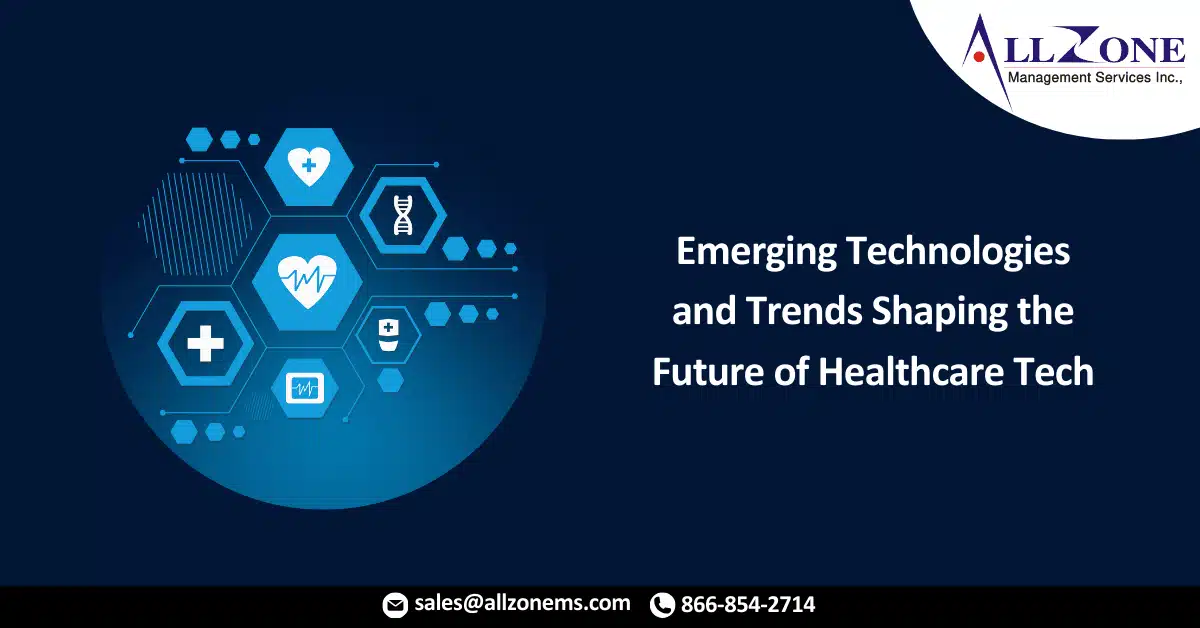The healthcare industry is set to undergo a transformation with the emergence of various technologies and trends. From artificial intelligence, virtual reality, telehealth, to blockchain, the pace of innovation in healthcare tech is rapid and shows no signs of slowing down. In this article, we will explore some of the most promising technologies and trends that are shaping the future of healthcare.
Artificial Intelligence (AI)
AI is a remarkable technology in healthcare today, capable of analyzing large volumes of patient data and detecting patterns that may not be immediately apparent to healthcare professionals. This can result in more individualized treatment plans, earlier interventions, and improved patient outcomes. Additionally, AI can enhance the efficiency of healthcare operations by automating administrative tasks and forecasting staffing requirements.
Telehealth
The adoption of telehealth has been rapidly increasing, with the COVID-19 pandemic further accelerating its momentum. Telehealth enables healthcare professionals to offer virtual consultations and remotely monitor patients, reducing the necessity for in-person visits. This technology is especially beneficial for individuals with chronic illnesses who require frequent check-ups and those who reside in rural areas or have mobility constraints.
Virtual Reality (VR)
Although still in its early stages in healthcare, virtual reality (VR) has tremendous potential. VR can generate immersive simulations of medical procedures, enabling healthcare professionals to practice and improve their techniques. Additionally, VR can create therapeutic environments for patients, such as virtual nature scenes for stress reduction or virtual reality games for pain management.
Blockchain Technology
Blockchain technology can potentially transform how healthcare data is stored and shared. Using blockchain, healthcare organizations can create a secure and decentralized patient records database accessible to authorized parties but protected from unauthorized access. This can improve patient data’s accuracy and privacy and healthcare operations; efficiency.
Wearable Technology
Wearable technology, such as smartwatches and fitness trackers, is not only popular among consumers but is also becoming increasingly crucial in healthcare. Wearables can monitor several health metrics, including heart rate, sleep quality, and physical activity. This data can be utilized to offer more personalized care and identify potential health issues before they escalate into more severe problems.
3-Dimensional Printing
Healthcare is another industry that is expected to undergo a transformation with the use of 3D printing technology. 3D printing can produce personalized prosthetics, implants, and other medical devices that are tailored to the specific needs of individual patients. Additionally, 3D printing can generate models of organs and other body parts for surgical preparation and training purposes.
Conclusion
The healthcare industry is on the cusp of a technological revolution, with numerous emerging technologies and trends expected to transform it. Artificial intelligence, telehealth, virtual reality, blockchain, wearable technology, and 3D printing are just some of the technologies that are revolutionizing healthcare. Patients can anticipate more individualized, convenient, and efficient care, while healthcare professionals can enjoy increased efficiency and patient satisfaction. As healthcare technology continues to advance, we can expect to witness even more exciting innovations in the future.

